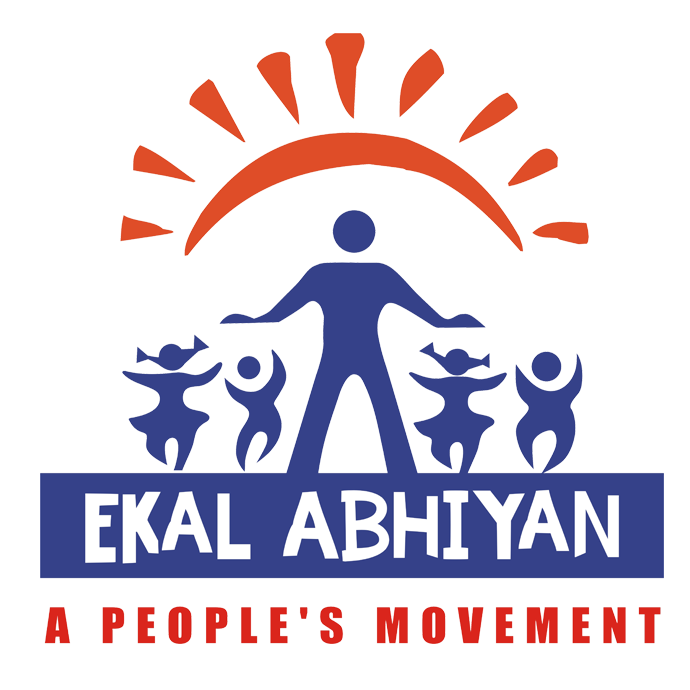Bringing happiness to tribal and rural communities through education
India is a country of villages having 1.28 billion of the total population. It is the second most populous country in the world. About 72.2% of the population lives in some 638,000 villages and the rest 27.8% in about 5,480 towns and urban agglomerations. India is a vast and most diversified country, geographically and culturally, facing several challenges, education being one of the most important of those. The challenge of education is most critical when it comes to rural & tribal areas. There have been several governmental and non-governmental efforts to educate the illiterate mass especially the vulnerable population of the society living in far flung areas. Ekal-a non-governmental organization began its journey 27 years back with the concept of “One Teacher School” in an asset free environment (where education can happen under a tree, in a hut, etc.). Ekal has been successfully imparting education to young children in an informal mode to ensure functional literacy in reading, writing & basic arithmetic blend with ethics & value education. Ekal also recently started skill based training to make the youth self-reliant with rural entrepreneurial skills so as to earn livelihood in the vicinity of their villages and avoid urban migration. Moreover, Ekal is at pace with time to bring innovations in teaching and learning by use of ICT (Information and Communication Technology) tools better known as Digital Ekal. Present case study focuses on one such effort in defining education not merely as reading-writing but imbibing sanskaras, values, innovations, livelihood, etc. carried out by EKAL known as Ekal Abhiyan. (for more detail, refer www.ekal.org)
Literacy in Rural and Tribal India: A Challenge
India is predominantly populated by rural communities (with more than 70% of the total population of India). A large portion of these rural communities is tribal (comprising of around 8.2%). There are around 16.2% Scheduled Caste of the total population. Apart from this, there are a significant number of OBCs and the other population inhabiting remote areas that have escaped the fruits of change and development that have taken India forward.
According to a news item which appeared in the national newspaper, The Hindu (dated July 04, 2015), “The Socio-Economic and Caste Census 2011 (SECC) has found that 36 percent of the 884 million people in rural India are illiterate. This is higher than the 32 percent recorded by the Census of India 2011. Of the 64 percent literate rural Indians, more than a fifth have not even completed primary school. The SECC also found that only 5.4 percent of rural India has completed high school with a mere 3.4 percent having graduated from college”.
The above-mentioned figures clearly indicate the significantly low status of literacy among the rural population especially within the age-group of primary school-going children.
Government Efforts to promote Primary Education
Government of India (GOI) has recognized the problem of illiteracy in general and especially at the Elementary or Primary School level among children aged 6 to 14 years. To address the issue at the grassroots level GOI had District Education Revitalization Programme (DERP) in 1994 with an aim to universalize primary education in India by reforming and vitalizing the existing primary education system. 80% of all recognized schools at the elementary stage are government-run or supported, making it the largest provider of education in the country. The education is provided free at the Primary School level for children from 6 to 14 years of age or up to class VIII under the Right of Children to Free and Compulsory Education Act 2009. The Annual Status of Education Report (ASER) 2012, states that 96.5% of all rural children between the ages of 6-14 were enrolled in school.
To promote the Primary School education GoI has banned child labour, significant improvement in staffing and enrolment of girls has also been made as a part of RTE scheme. The Sarva Shiksha Abhiyan which is one of the largest education initiatives in the world has also been launched.
Even after so many efforts done by GOI, the desired result has not been achieved. Presently, the school drop-out rate is very high. As quoted from The Telegraph dated February 21, 2005 ‘Only 47 of the 100 children enrolled in Class I reach Class VIII, putting the dropout rate in primary and elementary schools at 52.79%’.
There are various socioeconomic, cultural and other issues responsible for this alarmingly high dropout rate.
EKAL Movement – EKAL Abhiyan as CSR Activity
The pioneer leaders of EKAL movement decided to address and resolve the problem of basic primary education to children of remotely located villages to enable them to access their right to education. This was done under the help of CSR where funds were collected as donations or contributions by some leading Corporate Houses in India and NRIs living abroad.
The concept of EKAL movement also addressed the problem of empowerment that is even if some students do not move further for whatever reasons, the basic education that is Reading, Writing and basic Arithmetic, along with the education of values and general awareness would equip them suitably to live a better life. The needs for arranging formal education were manifold like infrastructure and trained teachers which were not easy to manage, the former for financial constraints and latter for availability of trained teachers from the same areas. Arranging teachers from outside was not a feasible option because neither the teachers were well versed with the local language and dialect or were capable of communication with children, nor were facilities available for their stay in these areas or for commuting. This led to evolution of a unique model of one teacher school and hence the name EKAL.


Ekal is truly bringing happiness to tribal and rural communities through education!
Incredible work in improving the lives of the unprivileged.
Amazing grass roots movement!!
EKal has been doing a great job and is the world largest organization in child education sector